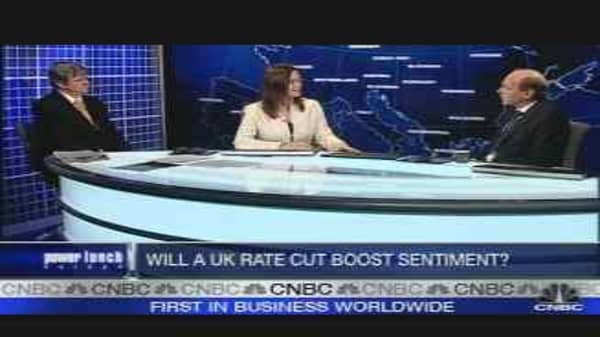The Bank of England cut its main rate by a quarter of a percentage point to 5.5 percent Thursday amid fears of an economic slowdown because of a spillover from the credit crunch.
"Although output in the United Kingdom has expanded at a brisk pace for the past two years, there are now signs that growth has begun to slow," the Bank of England said in a statement.
Sterling fell against the dollar after the announcement, down about 0.2%.
Over the past days, pressure has been mounting on the BoE to ease monetary policy after a string of weak data.
"The bank was never going to win on this … they're panicking and taking a risk on inflation," Andrew Smith, chief economist at KPMG, told "Power Lunch Europe."
"We are looking at least one, maybe two cuts in quick succession," Smith added.
More Cuts Expected
Economists are saying the bank must slash rates further to make sure the economy is not too affected by the financial markets' turmoil.
"I think we're in a farily long period of monetary easing," Jonathan Loynes, from Capital Economics, told CNBC.com, adding that he sees the rates going as low as 4 percent.
The extent to which rates may drop is difficult to gauge just yet, as the credit crunch's conclusion is not yet in sight.
"With growing downside risks for growth, we would suspect rates will be down to just 5% by mid 2008 with the clear risk that they move sub-5% in the second half of the year," ING economist James Knightley wrote in a market note.
Business representatives hailed the move, saying it helped overcome a slowdown in spending.



